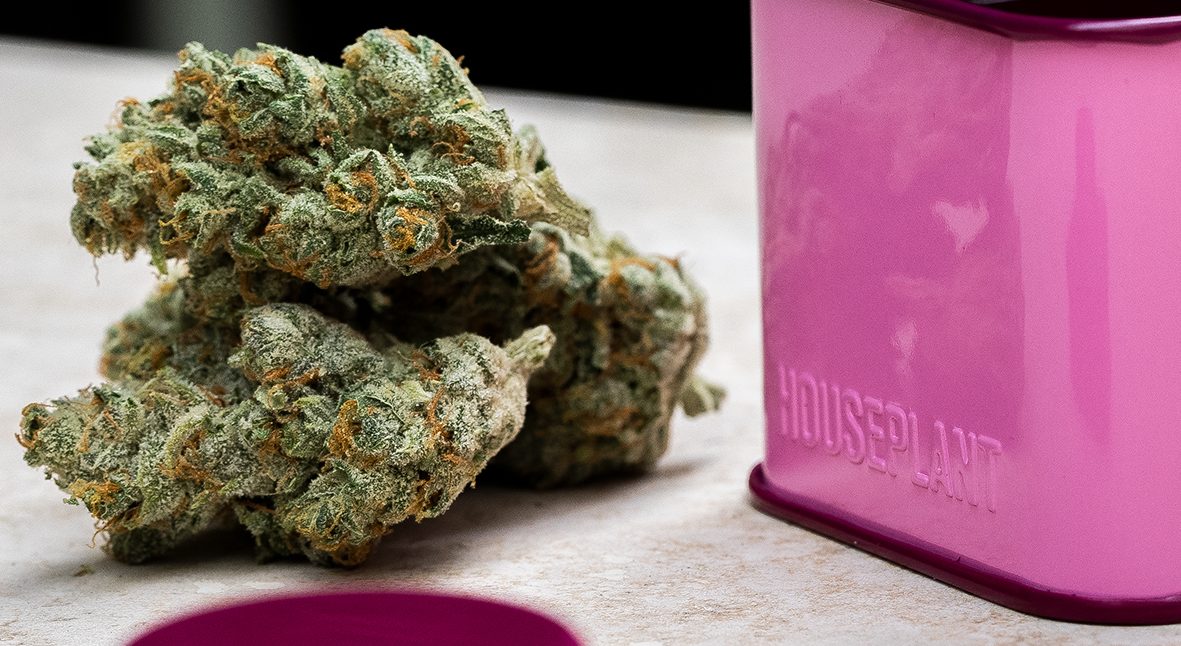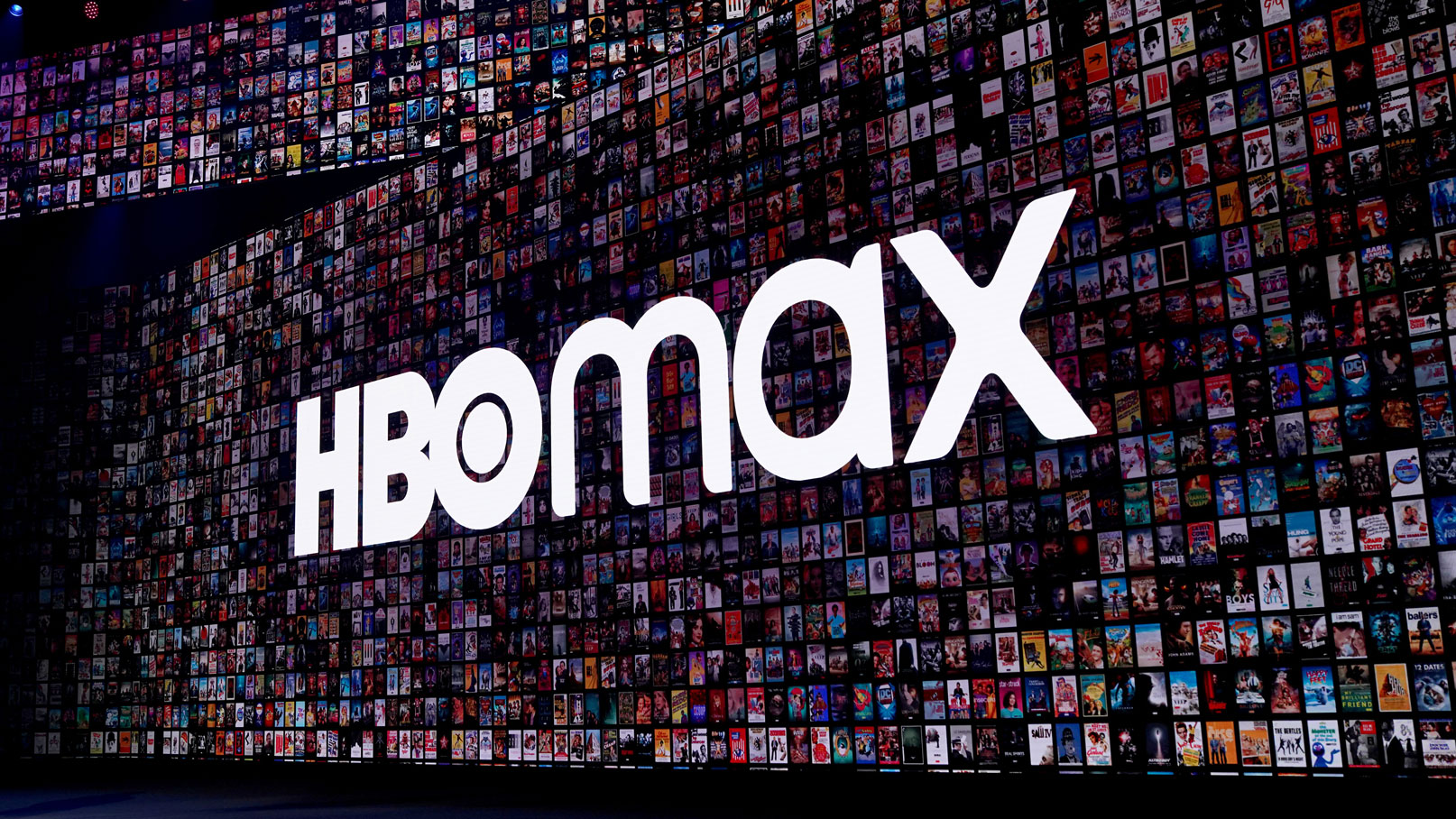Products You May Like
If that headline sounded judgmental, I apologize.
We just wrapped up a three-day virtual event that included discussions and interviews with some of the most notable people in technology, media, government and venture capital.
Even in person, there’s no way to absorb Disrupt in its entirety.
Full Extra Crunch articles are only available to members
Use discount code ECFriday to save 20% off a one- or two-year subscription
Normally, I would use this space to spotlight an article we published in the last few days, but our content management system runneth over. Many reporters filed stories recapping the interviews and panels they conducted at Disrupt, and there will be more to come in the next few days.
As you review the summaries below, please note that there’s a video at the bottom of every Disrupt story that includes the panel and interview.
Thanks very much for reading, and congratulations to the entire TechCrunch team for a job very well done!
Walter Thompson
Senior Editor, TechCrunch
@yourprotagonist
Duolingo doesn’t want to disrupt the college degree

Image Credits: Bryce Durbin
Duolingo CEO and co-founder Luis von Ahn has appeared at TechCrunch Disrupt before, but this year was his first time representing a public company.
A few months ago, reporter Natasha Mascarenhas described Duolingo’s debut as the “bellwether edtech IPO of the year,” so she was well-equipped with questions about the company’s plans for boosting revenue. For example, is premium content in the cards?
“If we wanted to make more money in the short-term, we could probably start paywalling things, but I think that would stifle our growth,” von Ahn says.
“If we start charging for some aspects of language learning, eventually we’re just gonna charge for everything.”
Here’s a recap, along with a video that captures the entire interview.
The whole package: How plastics and sustainability startups achieve success

Image Credits: Cavan Images / Getty Images
The amount of plastic pouring into our oceans is set to triple by 2040, and most un-recycled plastic in the world is generated by consumer packaged goods.
As people look to minimize the waste they produce, startups are coming up with novel solutions to help people and companies meet sustainability goals.
Editor-at-Large Mike Butcher spoke with:
- Svanika Balasubramanian, co-founder and CEO, rePurpose Global
- Brian Bushell, co-founder and CEO, by Humankind
- Lauren Singer, founder and CEO, Package Free
SEC Regional Director Erin Schneider talks SPACs, Coinbase and what startups could do better

Image Credits: TechCrunch
Connie Loizos asked Erin Schneider, regional director of the Securities and Exchange Commission’s San Francisco office, about crypto lending and the potential for new regulations covering SPAC companies and NFTs, but Schneider was clear from the outset that she was limited in what she could say.
“She did, however, share insight into her personal thinking about a range of these issues, which, given her position, seems very much worth knowing,” writes Connie.
Can the path to equitable healthcare avoid insurers?

Image Credits: Tetra Images / Getty Images
The U.S. healthcare system is a contentious topic, an uncomfortable truth that became evident when Darrell Etherington moderated a conversation with Cityblock Health president and co-founder Toyin Ajayi, Forward CEO and founder Adrian Aoun, and Carbon Health‘s Eren Bali.
“We keep saying that these companies are kind of consumer-centric,” Aoun says.
“But in many ways I think one of the things that you realize is that when you get in bed with the insurance companies, which, whether it’s a Carbon or a Cityblock, at the end of the day, [if] you get in bed with the insurance companies, unfortunately, your incentive is basically not to go build a good consumer product.”
Said Darrell: “Let’s just say this conversation got heated — fast.”
Peter Beck says Rocket Lab actively prepared for interplanetary missions ‘from day one’

Image Credits: Sam Toms and Simon Moffatt
Rocket Lab founder Peter Beck told Senior Editor Devin Coldewey that his own ambition to explore and learn from space goes back to his youth.
“I always felt that, if I could have the opportunity to go out into those stars and explore and perhaps ask or answer, one of the biggest questions in mankind’s history — ‘Are we the only life in the universe or not?’ — I would take that chance,” Beck says.
AI luminary Kai-Fu Lee and sci-fi author Chen Qiufan predict the future in ‘AI 2041’

Image Credits: Jeremy Thomas / Unsplash
Where will today’s technologies lead us over the next 20 years, and what will an AI-infused world look like across the globe?
Sinovation founder and AI thought leader Kai-Fu Lee and breakout sci-fi author Chen Qiufan (aka Stanley Chen) make an educated guess in “AI 2041: Ten Visions for Our Future,” a set of stories and essays that explore AI’s potential and pitfalls.
After reading the book, Senior Editor Devin Coldewey talked with Lee and Chen about how the collaboration came about, how their points of view coincided and differed, and why they think the future will be how they describe it.
Peloton CEO John Foley on the changing face of connected fitness

Image Credits: Peloton
Peloton CEO John Foley discussed broader safety issues with the category, noting that the unfortunate circumstances behind a recent recall forced the company to take a closer look at product safety, as well as whether the company will maintain its pandemic-boosted growth as cities reopen.
“We’re seeing a lot more people get excited about Peloton and say, ‘I’m not going back to the gym, the gym was a failed model. It was a failed contract between the member and the business, and actually, I didn’t go to the gym. It wasn’t convenient, I didn’t want to go drive somewhere and shower outside my home and take that extra time away from my family,’” the CEO says.
It turns out fintech is worth as much as SaaS

Image Credits: Nigel Sussman (opens in a new window)
Alex Wilhelm has spilled much ink about the Toast IPO in recent weeks, but he kept at it Thursday, comparing the debut of the Boston-based software-and-payments company to Remitly’s Wednesday evening flotation.
Seattle-based fintech Remitly, like Toast, priced above its proposed range.
“At $43 per share, Remitly is valued less like a fintech company with gross margins in the 50% to 60% range and more like a middle-tier public SaaS firm, flush with recurring revenues and net-dollar retention north of 100%,” Alex writes.
“The lesson from today’s public markets appears to be that revenue growth matters more than near-term margins for fintech companies, allowing them to secure valuations that far surpass their final private marks.”
Dear Sophie: What’s the difference between IEP and the latest proposed startup visa?

Image Credits: Bryce Durbin/TechCrunch
Dear Sophie,
What’s the difference between International Entrepreneur Parole and the latest proposed startup visa?
Do you think the startup visa will become a reality? If so, when?
— Financial Founder
Latin America’s second wave of digital transformation

Image Credits: blackdovfx (opens in a new window) / Getty Images
“When we first shared LatAm’s digital acceleration story in last year’s Latin America Digital Transformation Report, we believed we were at the peak of digital growth catalyzed by the pandemic,” Julio Vasconcellos, the managing partner of Latin America-focused VC fund Atlantico, writes in a guest column.
“But with 2021 came all the second- and third-order effects of the crisis, further accelerating a continentwide tech expansion to a pace beyond any projections.”
Vasconcellos breaks down the details from this year’s report. Just one eye-popping stat: Eight new unicorns have already been minted in the region this year, nearly hitting the 2020 rate by midyear.
What Canva CEO Melanie Perkins looks for in a potential acquisition

Image Credits: Canva
Design software startup Canva has experienced “staggering growth,” Managing Editor Jordan Crook writes in a recap of her conversation with Canva CEO Melanie Perkins.
With a fresh $200 million and a $40 billion valuation, could Canva utilize acquisitions to continue that explosive growth?
“As a company with huge goals — to empower anyone in the world to design, and as a result of that, to become one of the most valuable companies in the world — anyone who helps Canva ‘leapfrog’ toward those goals is particularly interesting as an acquisition target,” Jordan wrote of her chat with the CEO.
How Calendly is building a platform by turning scheduling into a center-stage event

Image Credits: Calendly
Ingrid Lunden began with a simple question when she sat down with Calendly founder and CEO Tope Awotona: If the product works well, how do you take it to the next level — and frankly, why should you?
Calendly raised $350 million at a $3 billion valuation earlier this year, but little has changed despite the infusion of cash.
“The question I had at the time [of that funding round] was, will the company take it as a distraction and become enamored with the publicity that comes with that? Or will we stay focused and continue to work really hard for our customers and partners and ourselves?” Awotona says.
“Nine months later, it’s very clear that we’ve done the latter. Our culture and values have more or less remained the same.”
Microsoft now more focused on ‘killing Zoom’ than Slack, says Stewart Butterfield

Image Credits: TechCrunch
Slack founder and CEO Stewart Butterfield and Salesforce COO Bret Taylor discussed their $28 billion merger, how they’re integrating the two companies, and the ongoing competition it faces from Microsoft Teams, which has grown faster than Slack, and which Butterfield once said was “unhealthily obsessed with killing Slack.”
“Over the last year, maybe even 18 months, I think Microsoft’s preoccupation with Slack has shifted somewhat to a preoccupation with killing Zoom, because Teams turns out to not really [be] so much of a direct competitor,” Butterfield says.
Twitter’s Rinki Sethi on why CISOs win when security is a shared responsibility

Image Credits: Bryce Durbin / TechCrunch
When is the right time to hire someone to oversee a company’s security efforts?
In an interview with Security Editor Zack Whittaker, Twitter CISO Rinki Sethi talked about the modern role of a chief information security officer and how the next generation of CISOs can stay ahead.
“I’m not going to be the security idealist and say you need to invest in security before the product or business features, but I think there’s a really strong balance,” Sethi says. “If you think about building security right from the beginning, I think you do have a really strong competitive advantage.”
Indications of a hot market abound as Freshworks, Toast price IPOs

Image Credits: Nigel Sussman (opens in a new window)
Alex Wilhelm could not be more adamant: The market is so hot right now.
For Wednesday’s Exchange, he backed it up with numbers, noting that Toast and Freshworks both priced above raised per-share price ranges.
“If you are looking for an indication that it’s a good time to go public, this is it.”
For BioNTech, the COVID-19 vaccine was simply the opening act

Image Credits: selvanegra / Getty Images
It took a global pandemic for BioNTech to become a household name: The technology it had been plugging away at meant it “happened to be positioned extremely well to use its mRNA technology to address the novel coronavirus, in part because it already had a partnership in place with Pfizer to develop a flu inoculation.”
BioNTech co-founder and CEO Uğur Şahin spoke with News Editor Darrell Etherington about the company’s start and its “broader vision,” which extends beyond the use of mRNA.
“Ultimately, BioNTech’s mission is to make treatments that are optimized not only to specific patient needs, but also to time and place,” Etherington writes in a recap for Extra Crunch. “All the treatments in the company’s pipeline are about refining the approach to addressing disease, making the process much more like a metaphorical scalpel than a bludgeon.”
“We can develop classical pharmaceuticals like a vaccine [in the case of COVID], but on the other side, also really continue to follow our vision,” Şahin says.
Seth Rogen explains how Houseplant promotes cannabis without breaking the rules

Image Credits: Houseplant
Many celebrities have turned their personal interests into thriving commercial concerns: Ryan Reynolds owns Aviation Gin, Jessica Alba founded nontoxic goods startup The Honest Company, and George Clooney will earn as much as $1 billion for selling his tequila company.
This year, actor Seth Rogen co-founded Houseplant, which sells pottery, cannabis and related accessories.
“We’ve sold house goods in all 50 states at this point,” Rogen explained. “That’s us, developing a relationship and trust with customers in places where weed is not legal yet.”
In a conversation with Managing Editor Matt Burns, Rogen, CEO Mike Mohr and chief commercial officer Haneen Davies discussed some of the challenges of brand-building within the confines of a strict regulatory environment.
“I think the merger of house and plant is what’s going to help us establish a brand name that goes beyond the limiting restrictions you have to abide by to communicate cannabis,” Davies says.
WarnerMedia’s Andy Forssell discusses a fascinating first year for HBO Max

Image Credits: Presley Ann/Getty Images for WarnerMedia
No one roots for a global pandemic, but WarnerMedia launched HBO Max just as cities and states across the U.S. restricted in-person gatherings as COVID-19 spread.
In many ways, the service seemed well-positioned, even in a crowded sector. HBO Max brought decades of critically acclaimed series, coupled with pricey acquisitions like the “Friends” and “South Park” back catalogs.
COO Andy Forssell joined TechCrunch Disrupt to discuss the fascinating 17.5 months of the service’s life so far:
“The early impacts were all negative, though, I think we, along with everyone in the industry, learned to roll with them,” he says. “Everybody had to work from home. That was tough, though I think we made the transition better than everyone thought. We were at launch mode at that point.”
How Ryan Reynolds mastered authentic marketing

Image Credits: Guy Aroch
Most people know Ryan Reynolds from his movies, but he also owns a majority stake in Mint Mobile, a mobile virtual network operator, which has grown more than 50,000% in the past three years. And he also invested in Aviation Gin before selling it for a staggering $600 million last year.
He’s also a founder of Maximum Effort, the marketing firm that promotes the “Deadpool” franchise, Aviation Gin, Mint Mobile, and that viral Match.com ad featuring Satan and the year 2020 as a match made in hell.
He spoke to Jordan Crook about how startups can adapt his concept of “fast-vertising” to use real-time cultural moments as a springboard for building their own brand buzz, among other things.
“When we lead with creative and we have an idea or are inspired by something, we get quite aggressive with our excitement and try to make something infectious around it,” Reynolds says.
Latin America finds a champion in SoftBank Group International CEO Marcelo Claure

Image Credits: Bryce Durbin
Since first announcing it was planting a stake in the ground in the region in early 2019, SoftBank has plugged more than $5 billion into Latin America and expects that number to top $8 billion by year’s end.
Its capital contributions are meaningful. In 2019, startups across Latin America raised $5.3 billion in funding, according to CB Insights. In 2020, they raised roughly the same amount.
This year, the pace of dealmaking has shifted into overdrive, with $9.3 billion being invested in Latin American startups in the first six months of the year. SoftBank Group CEO Marcelo Claure believes that by 2023, close to $30 billion will be invested in the region annually.
“Finally, the world has realized that Latin America has size,” Claure, a native of Bolivia, said this week at TechCrunch Disrupt.
Bootstrapping in 2021 goes a long way

Image Credits: Nigel Sussman (opens in a new window)
Alex Wilhelm and Anna Heim have spent a lot of time unpacking this year’s staggering venture capital numbers, but they ended the week with a look at the value of startups eschewing VC.
“After all, not all successful startups are in a good position to IPO, and we are facing an IPO traffic jam that even SPACs are failing to solve,” they write.
“But funded unicorns can’t escape it: They need to provide liquidity to their investors, and it’s too late for them to pursue a different route. Their bootstrapped counterparts, in contrast, have options.”
